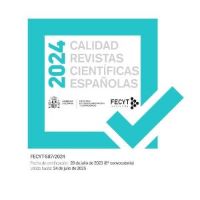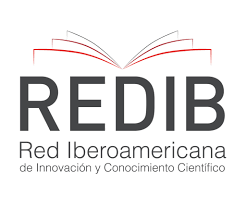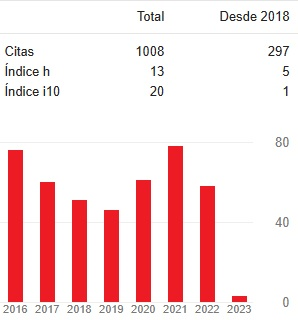The common good of the Parliamentary Monarchy
DOI:
https://doi.org/10.51743/cih.370Keywords:
Concord, Constitution, Crown, Law, Liberalism, PoliteíaAbstract
Since the classical philosophers, a mixed regime or politeía has been postulated that is at the service of the common good and that promulgates, with prestige, the laws; it is the institution that, according to them, guarantees concord, stability, peace, historical continuity, in which the King is a servant of the law. We will see some examples of the prestige (authority or spiritual power) achieved by some Constitutional Monarchies, Catholic and liberal, of the early xx century: the Spanish, the Portuguese and the Austro-Hungarian, which paved the way for the Parliamentary Monarchy because their Monarchs were liberal: although their respective Constitutions established their shared sovereignty with Parliament, they gave primacy not only to the Parliament, but also to the people whose sovereignty they recognized. It is necessary to explain what is meant by “liberal spirit”, which informs our Parliamentary Monarchy, whose King, Felipe VI, considers that without respect for the laws there is neither coexistence nor democracy, but rather insecurity, arbitrariness and, in short, failure of the moral and civic principles of society; because law is the best way to achieve and maintain peace. According to Julián Marías, the Monarchy is outside of belligerence, it is a permanent institution, superior to the political parties; it gives a continuity, with prestige, that allows change without breaking stability.
Downloads
References
Aristóteles: Ética a Nicómaco. Edición bilingüe y traducción de María Araujo y Julián Marías. Centro de Estudios Políticos y Constitucionales. Madrid, 2002 (octava edición).
Aristóteles: Política. Edición bilingüe y traducción de Julián Marías y María Araújo. Centro de Estudios Políticos y Constitucionales. Madrid, 2005 (sexta edición).
Cervantes, Miguel de: El amante liberal. Edición de Juan Bautista Avalle-Arce. Castalia. Madrid, 2001.
Constitución Española (1978).
Constitución de la Monarquía Española (1876).
Constitución Política de la Monarquía Española (1812).
Constitución pastoral Gaudium et Spes del Concilio Vaticano II.
Cortés-Cavanillas, Julián: Alfonso XIII y la Guerra del 14. Alce. Madrid, 1976.
CORTES DE LOS ANTIGUOS REINOS DE LEÓN Y DE CASTILLA, publicadas por la Real Academia de la Historia, tomo IV. Sucesores de Rivadeneyra. Madrid, 1882.
Dante Alighieri: Monarquía. Edición de Laureano Robles Carcedo y Luis Frayle Delgado. Tecnos. Madrid, 1992.
Erasmo: Obras escogidas. Edición de Lorenzo Riber. Aguilar. Madrid, 1956.
Felipe VI, Rey: Mensaje en su Proclamación ante las Cortes Generales, el 19 de junio de 2014.
Felipe VI, Rey: Palabras de Su Majestad ante la Asamblea Nacional de Angola (Luanda, 8 de febrero de 2023).
Felipe VI, Rey: Palabras de Su Majestad en el acto de entrega de despachos a la LXV Promoción de la Carrera Judicial (Barcelona, 23 de julio de 2015).
Felipe VI, Rey: Palabras de Su Majestad en la clausura del Congreso Mundial del Derecho (Teatro Real de Madrid, 20 de febrero de 2019).
Fernández de Oviedo, Gonzalo: Libro de la Cámara Real del Príncipe Don Juan, y Oficios de su Casa y Servicio ordinario. Edición de J. M. Escudero de la Peña. Sociedad de Bibliófilos Españoles. Madrid, 1870.
Francisco, PapaAPA: Discurso en la cumbre internacional de jueces y magistrados contra el tráfico de personas y el crimen organizado (Roma, 3 de junio de 2016).
Francisco, Papa : Encíclica Fratelli Tutti.
González Fernández, Enrique: “Algunos textos de Erasmo sobre la Familia Real Española”: Cuenta y Razón 145 (2007) 65-68.
González Fernández, Enrique: El Renacimiento del Humanismo. Filosofía frente a barbarie. BAC. Madrid, 2003.
González Fernández, Enrique: “La obra humanitaria del Rey Alfonso XIII durante la Primera Guerra Mundial”: Mar Oceana 2 (1995) 283-296. URL:http://ddfv.ufv.es/bitstream/handle/10641/642/La%20obra%20humanitaria%20del%20Rey%20Alfonso%
XIII%20durante%20la%20Primera%20Guerra%20Mundial.pdf?sequence=1&isAllowed=y
González Fernández, Enrique: Nacionalismo y Cristianismo. Prólogo de Jaime Mayor
Oreja; Epílogo de Josep Tarradellas. Unión Editorial. Madrid, 2016.
González Fernández, Enrique: Otra filosofía cristiana. Herder. Barcelona, 2020.
González Fernández, Enrique: Pensar España con Julián Marías. Rialp. Madrid, 2012.
González Fernández, Enrique: Quién era Alfonso XIII. Juventud (2ª edición). Barcelona, 2003.
González Fernández, Enrique: “Reina humanista”: Mar Oceana 9 (2001) 86-187. URL:
http://ddfv.ufv.es/xmlui/bitstream/handle/10641/726/Reina%20humanista.pdf?sequence=
&isAllowed=y
Huizinga, Johan: El otoño de la Edad Media. Traducción de José Gaos. Alianza Editorial. Madrid, 1994.
Jaeger, Werner: “Alabanza de la ley. Los orígenes de la filosofía del derecho y los griegos”: Revista de Estudios Políticos 67 (1953) 17-48.
Juan Carlos I, Rey: Discurso de Su Majestad al recibir el Premio Carlomagno (Aquisgrán, 20 de mayo de 1982).
Juan Carlos I, Rey: Un mensaje del Rey (texto de Su Majestad el Rey Don Juan Carlos publicado en el diario “El País” el 30 de septiembre de 1984).
Marañón, Gregorio: Obras Completas. Tomo I. Espasa-Calpe. Madrid, 1968.
Marías, Julián: España inteligible. Razón histórica de las Españas. Alianza Editorial. Madrid, 1985.
Marías, Julián: Hispanoamérica. Alianza Editorial. Madrid, 1986.
Marías, Julián: La Corona y la Comunidad Hispánica de Naciones. Asociación Francisco López de Gómara. Madrid, 1992.
Marías, Julián: La España real. Espasa. Madrid, 1998.
Marías, Julián: La fuerza de la razón. Alianza Editorial. Madrid, 2005.
Marías, Julián: La libertad en juego. Espasa-Calpe. Madrid, 1986.
Marías, Julián: Literatura y generaciones. Espasa-Calpe. Madrid, 1975.
Marías, Julián: Veinte años de reinado de Juan Carlos I. Premio VI Concurso nacional sobre “La Corona, institución básica en la proyección universal de España”. FIES. Madrid, 1995.
Memorias de Doña Eulalia de Borbón, Infanta de España. Juventud. Barcelona, 1987.
Ortega y Gasset, José: España invertebrada. Bosquejo de algunos pensamientos históricos; en Obras completas, tomo III. Fundación José Ortega y Gasset/Taurus. Madrid, 2006.
Ortega y Gasset, José: Meditaciones del Quijote. Edición de Julián Marías. Cátedra. Madrid, 1990 (segunda edición).
Ortografía de la Lengua Española. Real Academia Española. Espasa. Madrid, 1999.
Platón: Leyes. Edic. de Francisco Lisi. Gredos, Madrid, 1999.
Romm en, Heinrich Albert: El Estado en el pensamiento católico. Un tratado de filosofía política. Traducción de Enrique Tierno Galván. Instituto de Estudios Políticos. Madrid, 1956.
Seco Serrano, Carlos: Alfonso XIII. Arlanza. Madrid, 2001.
Santo Tomás de Aquino: La Monarquía. Al Rey de Chipre. Edición de Laureano Robles Carcedo. En Opúsculos y Cuestiones selectas. II. Edición bilingüe. BAC. Madrid, 2003.
Santo Tomás de Aquino: Suma de Teología. BAC. Madrid, 1993 (segunda edición), tomo II.
Testamento y Codicilo de Isabel la Católica. Edición del Ministerio de Asuntos Exteriores (Dirección General de Relaciones Culturales). Madrid, 1956.
Downloads
Published
How to Cite
Issue
Section
License
The Fundación Universitaria Española publishing house preserves the patrimonial rights (copyright) of published works, and encourages and allows their reuse. The works are published in the electronic edition of the journal under a license “Creative Commons Atribución/Reconocimiento-NoComercial 4.0 Licencia Pública Internacional — CC BY-NC 4.0”, and can be copied, used, disseminated, transmitted and publicly exhibited, provided that : a) the authorship and original source of its publication is cited (journal, publisher and URL of the work); b) are not used for commercial purposes; c) the existence and specifications of this license of use are mentioned.
The author / s partially transfer the property rights (copyright) of this work to the Fundación Universitaria Española (Spain) (NIF: G28433670), for the printed and online editions.
It also declares to have respected the ethical principles of research and to be free from any conflict of interest.
«C.I.H.» encourages the authors and the scientific community to the maximum promotion and dissemination of the works in their final version through:
1) Your list of contacts (emails) and social networks (Facebook, Twitter, LinkedIn ...).
2) Institutional repository of your University and public repositories (Mendeley, Cosis ...).
3) Scientific social networks (ResearchGate, Academia.edu, Kudos ...).
4) Personal or institutional website, blog, etc.
5) Google Scholar, ORCID, ResearchID, ScopusID, Dimensions, PlumX ...
6) Printed copies purchased directly and sent to specialists for reading and subsequent citation if appropriate.
For the nomination of future articles by authors of "C.I.H.", the impact of previous works will be taken into account, so that those with citation higher than the annual average of the journal will be preferred.












2.jpg)
















1.png)
1.png)

1.png)


.png)
.png)

.png)
1.png)
1.png)
